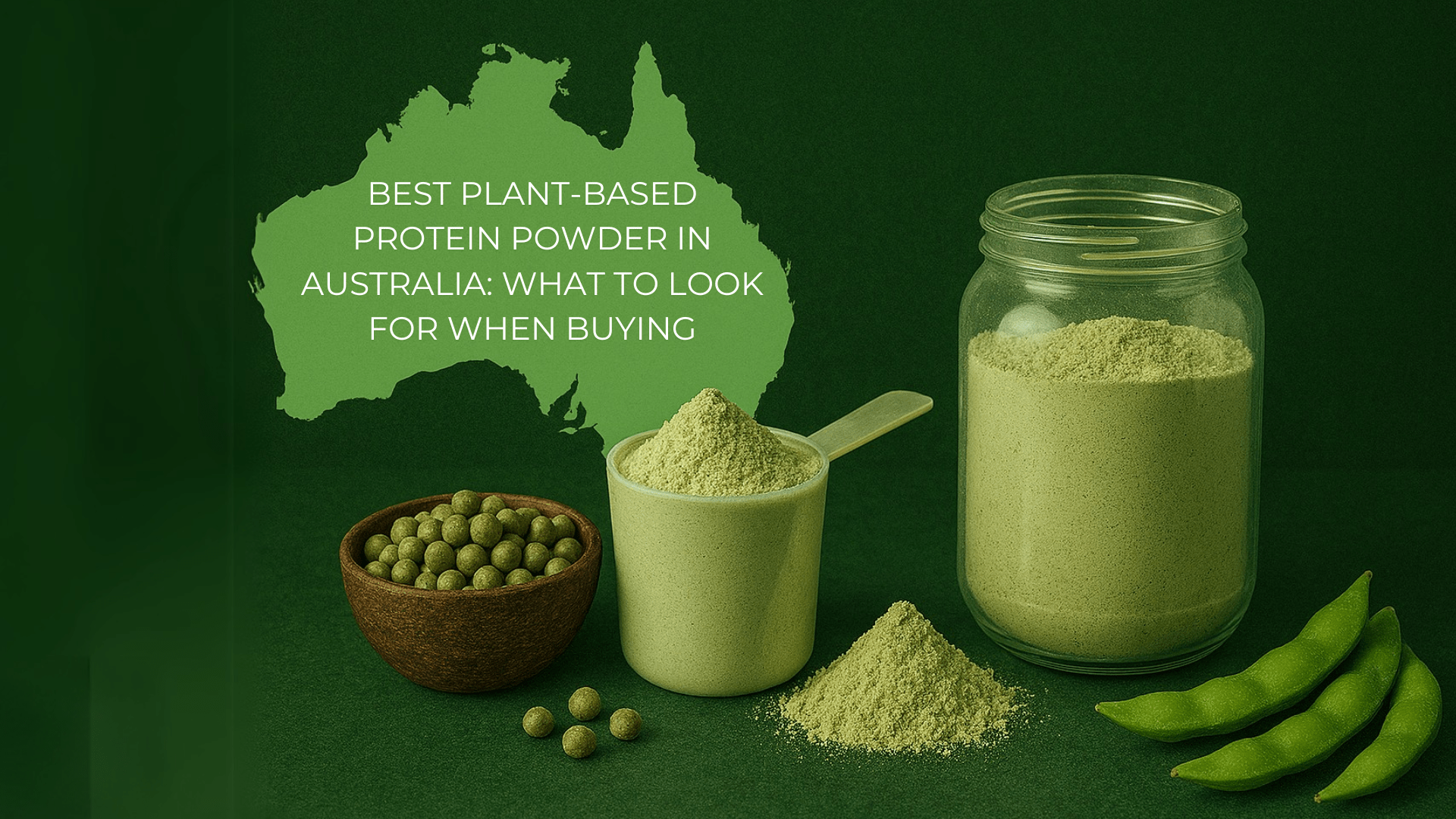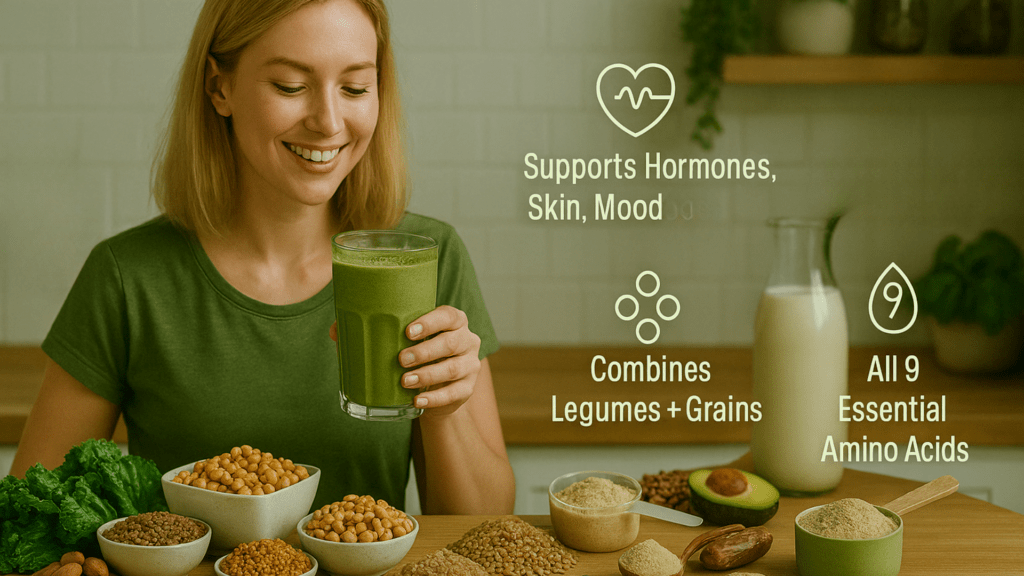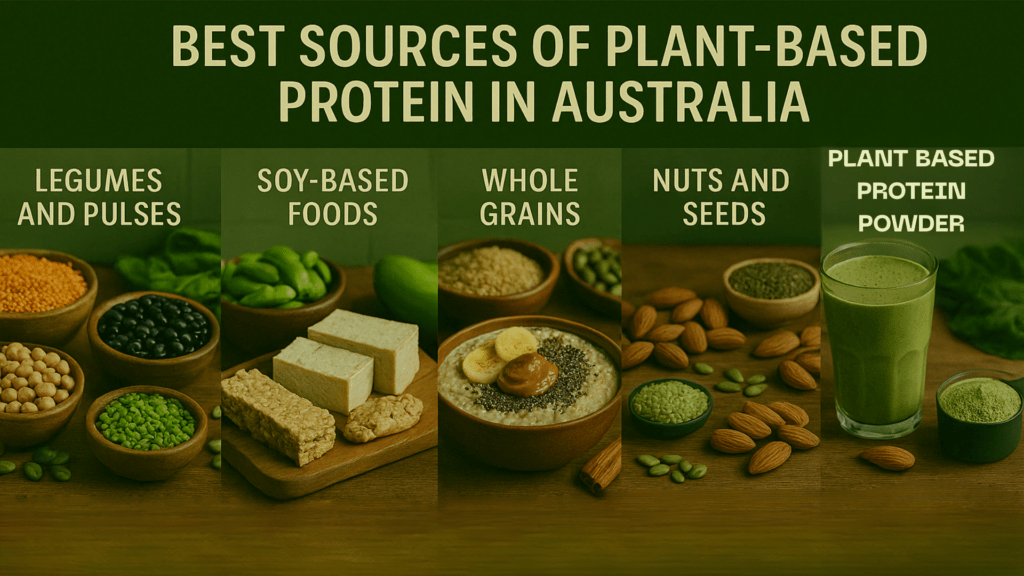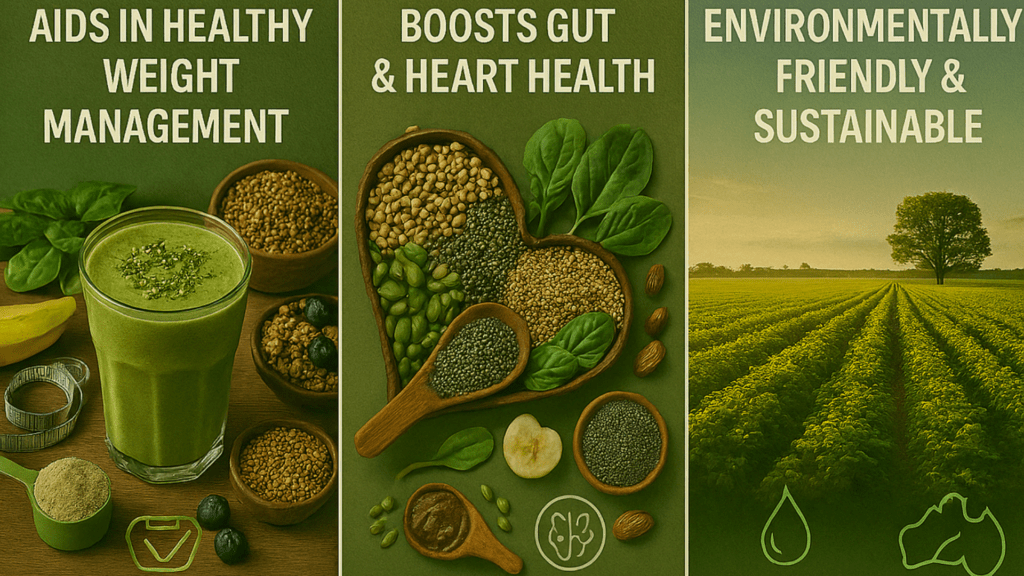

As the wellness movement grows across the country, more Australians are turning to plant-based living for health, ethical, and environmental reasons. Whether it’s a complete switch to veganism or simply reducing meat and dairy intake, the plant-based diet is on the rise. And with it comes a key nutritional concern: how to get enough protein. The solution lies in understanding how to effectively use Plant-Based Diet Protein in Australia, and the wide range of options now available.
Protein is a macronutrient that plays a critical role in every function of the human body—from building muscle and supporting recovery to strengthening immunity and producing enzymes and hormones. While meat, dairy, and eggs have been traditional protein staples, plant-based alternatives are now recognized as equally powerful when chosen wisely. Thanks to high-quality Australian brands like Green Choice Proteins (GCP), consumers now have access to premium, clean, locally sourced plant-based protein powders that make hitting protein goals both easy and delicious.
Plant-based diet protein refers to proteins derived entirely from plant sources such as legumes, grains, seeds, nuts, and vegetables. These proteins differ from animal proteins in several important ways. For starters, they contain no cholesterol and typically have lower levels of saturated fat. They’re also rich in fiber and antioxidants—two nutrients missing in animal products—and they support gut health, reduce inflammation, and lower the risk of chronic diseases.
In Australia, plant-based diet protein has become more advanced and accessible, with brands like GCP producing clean-label protein powders using ingredients such as pea, chickpea, and brown rice. These blends are scientifically formulated to include all nine essential amino acids, ensuring that the protein is complete and fully supportive of the body’s recovery, repair, and energy needs.

Protein is crucial for everyone—not just athletes. It contributes to muscle preservation, tissue repair, immune response, hormone production, skin elasticity, and even mood regulation. On a vegan or vegetarian diet, it’s easy to consume adequate protein with a little planning, but it requires awareness of food pairings and diversity.
A key challenge is that many plant proteins are “incomplete,” meaning they lack one or more essential amino acids. However, this can be resolved by combining multiple sources (like legumes with grains) or using a complete plant protein powder like GCP, which eliminates the guesswork and ensures you’re covered with every scoop.

Legumes—such as lentils, black beans, chickpeas, and split peas—are foundational protein sources in plant-based diets. They are nutrient-dense, inexpensive, and incredibly versatile. A cup of cooked lentils offers around 18g of protein, along with fiber, folate, and iron. Chickpeas, in particular, are high in lysine, an amino acid important for tissue growth and repair. Incorporating legumes into stews, curries, wraps, and salads can easily help meet daily protein requirements.
Tofu, tempeh, and edamame are complete protein sources, meaning they contain all essential amino acids. Tofu is highly adaptable and absorbs flavors well, while tempeh is fermented, adding gut health benefits. One block of firm tofu contains around 20g of protein, making it ideal for stir-fries, sandwiches, or vegan tacos.
Whole grains like quinoa, amaranth, and teff provide a solid amount of protein and, in many cases, offer complete protein profiles. Even more common grains like brown rice, oats, and whole wheat can contribute meaningfully to your protein intake, especially when paired with legumes. A bowl of oatmeal with almond butter, chia seeds, and protein powder can become a protein-rich breakfast with minimal effort.
Almonds, walnuts, chia seeds, flaxseeds, sunflower seeds, and hemp seeds not only add protein to meals but also provide healthy fats, fiber, and essential minerals like magnesium and zinc. Hemp seeds stand out for offering all essential amino acids and are a convenient protein booster for smoothies, salads, or even baking.
One of the most efficient and practical ways to hit your daily protein target is by using plant-based protein powders. Just one scoop of GCP protein provides 20–25g of complete protein, making it an excellent option for breakfast smoothies, post-workout recovery, or baking. Made from Australian-grown peas and chickpeas, GCP’s blends are free from soy, gluten, dairy, and artificial ingredients—making them safe, clean, and effective for daily use.
Browse the full range of GCP proteins here.
Protein needs vary based on factors such as age, activity level, and overall health. For the average sedentary adult, the RDI (Recommended Dietary Intake) is 0.8 grams of protein per kilogram of body weight. However, for those who are physically active, pregnant, breastfeeding, or older adults, this can increase to 1.2–2.0 grams/kg.
For example:
These numbers are easily achievable through a combination of whole foods and high-quality plant-based supplements like GCP’s protein powder.

With the right intake and training routine, plant-based eaters can build muscle just as effectively as those consuming animal protein. GCP’s protein includes branched-chain amino acids (BCAAs) like leucine, which is essential for stimulating muscle protein synthesis post-exercise. This makes GCP ideal for anyone engaging in resistance training, running, yoga, or team sports.
Protein helps reduce hunger hormones like ghrelin and increases the release of satiety hormones, helping you feel full for longer. This naturally leads to reduced calorie intake and better portion control, supporting healthy weight loss or maintenance. Plant-based protein sources also tend to be lower in calories and higher in fiber compared to animal-based products.
One unique advantage of plant-based protein sources is their built-in fiber content, which supports digestion, feeds good bacteria, and improves regularity. Moreover, plant-based diets are linked to lower LDL cholesterol, improved blood pressure, and a reduced risk of heart disease—benefits amplified when the diet is rich in protein-rich legumes and seeds.
Plant proteins require fewer natural resources and produce fewer greenhouse gas emissions than animal agriculture. In addition to health benefits, choosing plant-based diet protein in Australia helps reduce your ecological footprint. GCP furthers this commitment by sourcing ingredients locally and supporting Australian regenerative agriculture, ensuring sustainability across the entire supply chain.
Reality: When properly combined or consumed via complete blends like GCP’s, plant proteins are equally effective in muscle building and repair.
Reality: Whole plant foods and high-quality supplements make it entirely possible and practical to hit daily protein targets on a vegan diet.
Reality: Modern formulations like GCP’s offer smooth textures and naturally flavored options (like Vanilla and Chocolate) that blend beautifully into a variety of meals and shakes.
Yes! By eating a variety of legumes, grains, nuts, and using a clean protein supplement like GCP, you can easily meet your protein needs.
While not essential, it makes meeting your goals much easier—especially for athletes, busy individuals, or those with higher needs.
Post-workout, at breakfast, or as a meal/snack between meals. Timing depends on your goals, but consistency matters most.
Yes. GCP’s protein is designed for daily use—free from allergens, synthetic additives, and preservatives.
You can shop the full GCP range at gcproteins.com.au/shop—Australia’s trusted source for premium plant proteins.
Living a healthy, plant-based lifestyle doesn’t mean compromising on protein. In fact, with access to nutrient-rich whole foods and complete, Australian-made supplements like those from Green Choice Proteins, getting enough protein is easier, tastier, and more beneficial than ever.
Whether your goals include building muscle, boosting energy, improving digestion, or supporting weight loss, plant-based diet protein in Australia gives you the tools to fuel your journey—naturally, ethically, and powerfully.
Join our mailing list and be the first to know about exclusive offers, new product launches, nutrition tips, and more! Elevate your plant-based journey with expert insights and special deals straight to your inbox.
Sign up today and fuel your health the Green Choice way! 💚


Where plant-based nutrition meets unparalleled quality! Fuel your health and fitness journey with our premium plant protein, crafted from the finest Australian-grown ingredients. Clean, delicious and packed with nutrition—because you deserve the best!
Copyright 2025 © GCP | All Rights Reserved | Designed by Bufferchime